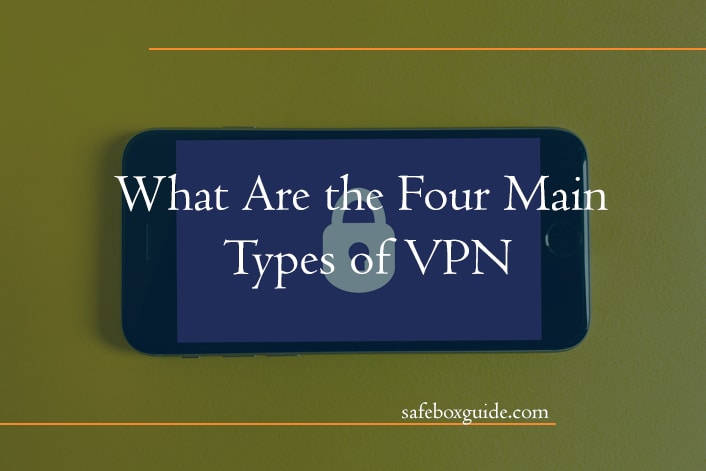In today’s digital era, virtual private networks (VPNs) are becoming increasingly popular for their ability to protect user data and anonymity. A VPN helps to create a secure connection between two or more computers over the Internet.
With so many different types of VPNs out there, it can be difficult to decide which one is best suited for your needs. In this article, we will discuss the four main types of VPNs and provide some insight into each one.
Contents
Main Types of VPN

VPNs fall into four main types: personal VPNs, remote access VPNs, mobile VPNs, and site-to-site VPNs. In this article, we provide information on these VPN types and how to use them.
A VPN creates a private tunnel within a public network (e.g. the web). VPN software allows you to send and receive encrypted data transfers. VPNs use many kinds of VPN protocols to encrypt Internet connections and render them private. Furthermore, different versions of VPN software are available.
VPN review websites most frequently examine personal VPNs. These are used to secure access to private networks, bypass firewalls, and bypass geographic internet restrictions. Businesses, on the other hand, use remote access VPN, which enables workers to access company resources while traveling or working from home.
When the employee does not have an acceptable or stable internet connection, a mobile VPN may be used as a substitute. Finally, when there are different websites or companies trying to attach to a single private network (not just a single staff member), businesses will need to employ a site-to-site VPN.
Remote Access VPN
A remote-access VPN enables you to access a private network, such as a private network within your company. When you use the Internet to connect to this network, it’s an untrusted link in your communication. Strong VPN encryption protects your data as it travels between the private network and the internet.
To use a remote-accessing VPN, you usually need to install a client software or configure your operating system’s settings to work with the VPN. You must also set up a VPN server on the network end of the connection.
There may be a large range of client devices, as there are individual users who can connect to the VPN server. Between those two programs, the client software and the VPN server manage the VPN connection.
Personal VPN Services
A personal VPN enables you use a VPN server to link your device with the online websites you would like to visit. The personal VPN also sometimes known as a consumer or business VPN encrypts your connection, gets rid of your digital identification, and enables you to forge your location.
Your personal VPN is different from a remote access VPN because it doesn’t give you access to a private network. Instead, a personal VPN gives you a public internet connection, but inside a secure tunnel.
Mobile VPNs

While remote access VPNs permit you a connection to a local network from anywhere, assuming that the user sany network connection. It doesn’t have to operate on a mobile phone on a mobile network.
However, numerous personal VPNs offer program variations you can download to your cell phone. These are different from the kind of mobile VPNs. Mobile VPNs are usually a type of franchise VPN, utilized by employees to have access to the business network.
Site-to-Site VPNs
A site-to-site VPN connects networks at two separate places. If your company had branches on the East Coast and West Coast, for instance, a site-to-site VPN could be used to link them into a single network.
Different technologies can be used to create a site-to-site VPN. These include IPsec, dynamic multipoint VPN (DMVPN), and L3VPN. Site-to-site VPNs may also be referred to as network-based VPNs.
A site-to-site VPN and a remote access VPN can be combined. For example, a site-to-site VPN can be used to create a network that spans many organizations. Then, a remote access VPN can provide access to that network to its employees that work from home.
Conclusion
The four main types of VPNs are Remote Access, Site-to-Site, Mobile and Intranet-based. Each type is designed to provide a secure connection for users in different environments and scenarios. They offer advantages such as enhanced security, privacy and anonymity when accessing the internet.
Knowing the differences between these four main types of VPN can help determine which one is right for you. Be sure to research the individual features offered by each provider before investing in a particular service or product.

